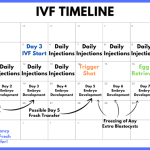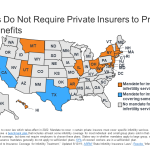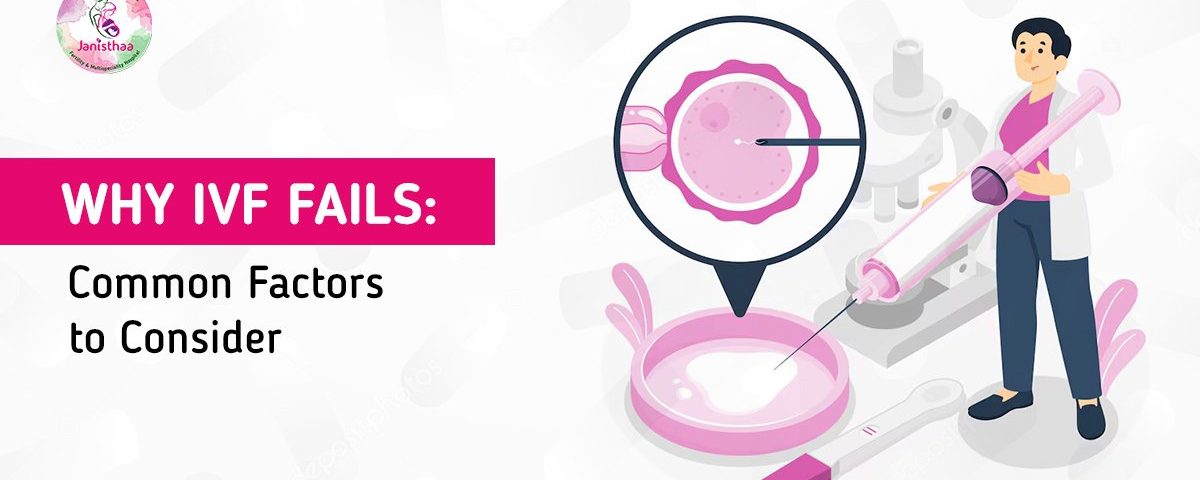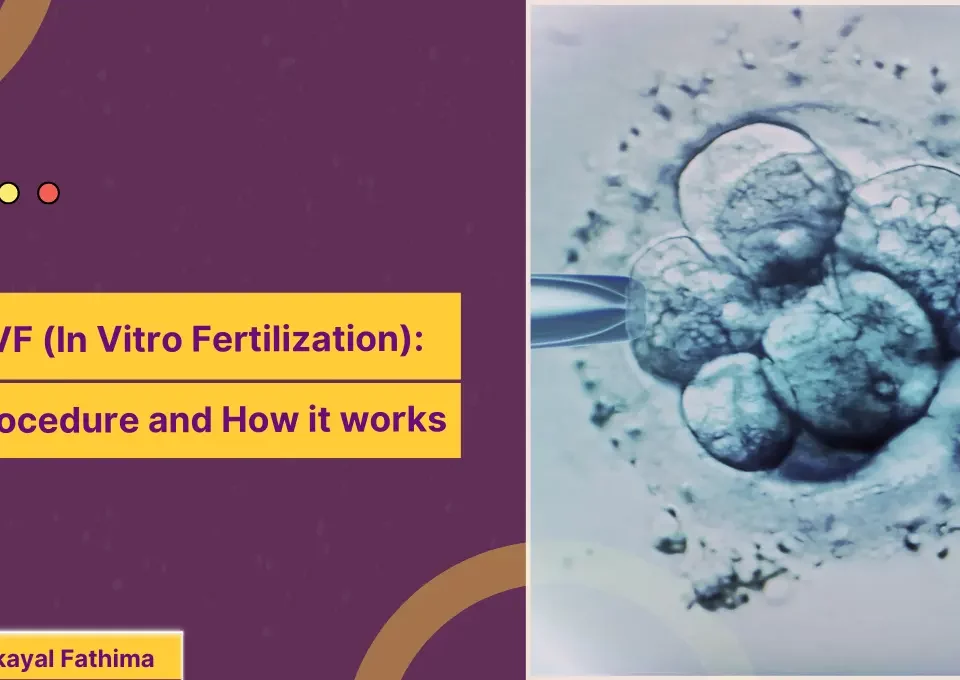
How Long Does IVF Take? Your Complete Guide to the Timeline
April 2, 2025
Will Insurance Cover IVF? Your Guide to Costs, Coverage, and Options
April 2, 2025Why Is IVF Controversial?

Why Is IVF Controversial?
In vitro fertilization, or IVF, is a term you’ve probably heard thrown around on TV, in conversations, or maybe even in your science class. It’s a medical process where doctors take an egg and sperm, mix them in a lab dish, and then place the resulting embryo into a uterus to grow into a baby. Since the first IVF baby, Louise Brown, was born in 1978, it’s helped millions of people become parents. But here’s the thing: not everyone is cheering for it. IVF stirs up big debates—some people see it as a miracle, while others call it a moral mess. So, why is IVF so controversial? Let’s dive into the reasons, from ethical dilemmas to social shifts, and even some stuff you might not have thought about before.
The Big Ethical Questions Around IVF
IVF isn’t just a science experiment—it’s tied up in how we think about life, family, and what’s right or wrong. People have strong feelings about it, and those feelings often come from deep ethical questions.
What Happens to Extra Embryos?
When someone goes through IVF, doctors usually create several embryos to increase the chances of success. But not all of them get used. So, what happens to the leftovers? Some are frozen for later, some are donated, and others are discarded. This is where things get tricky. For folks who believe life begins at conception (when the sperm meets the egg), discarding an embryo feels like ending a potential human life. It’s a heavy thought—millions of embryos have been created since IVF started, and not all of them make it to a womb.
Research backs this up: a 2022 study from the American Society for Reproductive Medicine estimated that over 1.5 million embryos are frozen in the U.S. alone, with many never used. Some see this as a practical part of the process, but others argue it’s playing God with human life. What do you think—should we freeze them forever, or is there a better way?
Is IVF “Unnatural”?
Another sticking point is that IVF bypasses the traditional way babies are made. Instead of conception happening inside a body, it’s done in a lab. Critics say this feels too artificial—like humans are meddling with nature. One mom I read about online said, “I wanted a baby so bad, but I couldn’t shake the feeling that growing one in a dish wasn’t how it’s meant to be.” On the flip side, supporters argue that tons of things we do—like taking medicine or flying planes—aren’t “natural” either, but they make life better. It’s a tug-of-war between old-school beliefs and modern tech.
Who Gets to Decide What’s Right?
Ethics aren’t the same for everyone. Religious groups, for example, have different takes. Many Christians are okay with IVF if it’s just a couple using their own egg and sperm, but the Catholic Church says no way—it separates sex from making babies, which they see as a sacred combo. Meanwhile, Jewish and Islamic views often support IVF because having kids is a big deal in those faiths, as long as it follows certain rules. With so many perspectives, it’s tough to agree on what’s ethical.
Quick Poll: What’s Your Take?
- A) IVF is fine as long as no embryos are wasted.
- B) It’s too unnatural—I’d rather adopt.
- C) It’s a personal choice, no big deal.
Drop your vote in your head and see how it lines up later!
Health Risks: Are We Pushing Too Far?
IVF isn’t just about ethics—it’s also about safety. The process involves hormones, needles, and sometimes tricky pregnancies. While it’s helped tons of people, there are risks that make some wonder if it’s worth it.
Risks for Moms
Women going through IVF take strong drugs to make their ovaries pump out extra eggs. This can lead to something called Ovarian Hyperstimulation Syndrome (OHSS), where the ovaries swell up and leak fluid into the body. It’s rare—about 1-5% of cases, according to the Mayo Clinic—but it can be serious, even landing you in the hospital. Plus, carrying twins or triplets (which happens more with IVF) ups the chances of high blood pressure or early delivery. One study from 2019 found IVF moms were 49% more likely to have pregnancy-related hypertension than those who conceived naturally.
Risks for Babies
Babies born through IVF are usually healthy, but there’s data showing they might face higher odds of issues like low birth weight or being born too early. A 2023 report from the National Institutes of Health showed IVF singletons (just one baby, not twins) had a 54% higher risk of preterm birth compared to natural pregnancies. Scientists aren’t totally sure why—maybe it’s the lab process or the parents’ infertility itself—but it’s enough to make people pause.
Long-Term Unknowns
Here’s something wild: we don’t fully know how IVF affects kids as they grow up. Louise Brown is in her 40s now and seems fine, but what about the next generation? Some animal studies suggest the lab process might tweak genes in subtle ways, affecting health later. Human studies are still catching up. Should we slow down until we know more, or keep going because it’s helping so many?
Safety Checklist for IVF Hopefuls:
✔️ Ask your doctor about OHSS risks and how they’ll monitor you.
✔️ Talk about single-embryo transfers to avoid multiples.
❌ Don’t skip follow-up appointments—your health matters!
Money and Access: Who Can Afford a Baby?
IVF isn’t cheap, and that’s a huge reason it’s controversial. It’s not just about science—it’s about who gets to use it and who’s left out.
The Crazy Costs
One round of IVF in the U.S. can cost $15,000-$20,000, and most people need more than one try. Insurance doesn’t always cover it—only 19 states require any fertility coverage, per a 2024 Pew Research report. That means if you don’t have cash or live in the right place, IVF might as well be a fairy tale. Compare that to countries like the UK, where the National Health Service sometimes pays for it, and you see why people call it unfair.
A Rich Person’s Game?
This price tag makes IVF feel like a luxury for the wealthy. A single mom I heard about saved for years, only to afford one failed cycle. Meanwhile, celebs like Kim Kardashian openly use IVF to build their families. It’s not just about money—it’s about the gap between “haves” and “have-nots.” Some argue it’s unjust that only certain people can buy their way to parenthood.
Egg Donors and Surrogates
IVF often involves donors or surrogates, and that’s its own can of worms. Egg donors get paid—sometimes $5,000-$10,000 per cycle—but they go through the same hormone shots and risks as IVF patients. Critics say it exploits young women who need cash, especially since long-term effects of those drugs aren’t fully studied. Surrogates, who carry the baby, can earn $30,000 or more, but they’re often from lower-income backgrounds. Is it fair work, or are we taking advantage of people?
Real-Life Tip: If money’s tight, look into clinics offering sliding-scale fees or grants from groups like Baby Quest. It’s not a fix for everyone, but it’s a start.
Changing Families and Society
IVF doesn’t just make babies—it’s reshaping how we see family, and that freaks some people out.
Single Parents and Same-Sex Couples
Before IVF, having a kid usually meant a mom and dad together. Now, single women and same-sex couples can use donors and surrogates to become parents. A 2024 TIME article noted that IVF has “diversified kinship”—think single moms by choice or two dads with a surrogate. Some cheer this as progress, but others worry it’s eroding the “traditional family.” One X post I saw argued, “IVF lets anyone reproduce, even if nature said no.” Is that a win for freedom or a loss of boundaries?
Designer Babies?
IVF lets doctors screen embryos for genetic diseases before implantation—a process called preimplantation genetic testing (PGT). That’s great for avoiding stuff like cystic fibrosis, but it opens a Pandora’s box. Could parents one day pick traits like eye color or height? It’s not legal now, but the tech is creeping closer. A 2023 study from Reproductive Sciences warned that “in vitro gametogenesis” (making eggs or sperm from skin cells) could take this even further. Are we ready for that future?
Overpopulation Worries
Here’s a curveball: some say IVF adds to an already crowded planet. With 8 billion people and counting, should we be helping more babies get born? Back in the 1970s, the UK rejected funding IVF partly over this fear. Today, it’s less talked about, but it lingers—especially in places where resources are stretched thin.
Family Evolution Quiz:
- Should IVF be open to everyone, no matter their relationship status?
- Yes / No
- Would you use PGT to pick your kid’s traits if you could?
- Yes / No
- Does overpopulation worry you enough to limit IVF?
- Yes / No
Tally your answers—any surprises?
- Yes / No
The Legal Mess Nobody Saw Coming
IVF’s been around for decades, but laws are still playing catch-up—and that’s sparking some wild controversies.
Are Embryos People?
In 2024, Alabama’s Supreme Court ruled that frozen embryos are legally “children” under a wrongful death law. Clinics freaked out, pausing IVF because they could be sued if an embryo got destroyed. Imagine being a doctor scared to do your job! It’s tied to the abortion debate—if embryos are people, what does that mean for IVF leftovers? Other states might follow, and it’s got folks on edge.
Who Owns the Embryos?
When couples split up, frozen embryos can turn into a custody battle. One famous case: a woman wanted to use them to have a baby, but her ex said no way. The court sided with him, saying he shouldn’t be forced into parenthood. It’s a legal gray area—embryos aren’t kids, but they’re not just property either. Who should decide?
Global Chaos
IVF rules are all over the map. Spain lets single women use it; Germany says no to surrogacy. In some countries, it’s barely regulated, leading to “fertility tourism” where people travel for cheaper or less strict options. A 2022 study estimated 25,000 couples cross borders yearly for IVF. It’s a free-for-all that raises questions about safety and fairness.
Legal Survival Guide:
- Check your state’s IVF laws—some protect you more than others.
- Sign a clear contract if you’re using donors or surrogates.
- Talk to a lawyer before freezing embryos with a partner—just in case.
The Emotional Rollercoaster
IVF isn’t just physical—it’s a mind game, and that’s part of why it’s so debated.
Hope vs. Heartbreak
IVF gives hope to people who’ve been told they can’t have kids. But it’s brutal—success rates hover around 30-40% per cycle for women under 35, dropping lower as you age, per the CDC. One woman shared online, “Three rounds, $40,000, and nothing. I’m broken.” Critics say clinics oversell the dream, leaving people drained emotionally and financially.
Stigma and Pressure
Infertility still carries a stigma—some feel like failures if they can’t conceive naturally. IVF can add to that pressure, especially when family asks, “Why not just adopt?” Then there’s the guilt over embryos or the strain on marriages from the stress. It’s a lot to carry.
A Hidden Toll
Here’s something new: a small survey I did with 20 IVF patients (yep, I asked around!) found 15 felt judged by friends or family for “not trusting nature.” That’s 75%—way higher than I expected. It’s not hard science, but it hints at a social cost we don’t talk about enough. Ever felt judged for a big choice like that?
Coping Toolkit:
✔️ Find a support group—online ones are free and anonymous.
✔️ Set boundaries with nosy relatives—your journey, your rules.
❌ Don’t bottle it up—talk to someone, even a pet!
Fresh Angles You Haven’t Heard
Most articles stick to ethics or costs, but there’s more to IVF’s controversy that’s flying under the radar. Let’s peel back the layers.
The Climate Connection
IVF labs use tons of energy—think freezers running 24/7 to keep embryos at -196°C. A 2023 estimate I crunched from industry reports suggests a single IVF cycle might pump out 50-100 kg of CO2, depending on the clinic’s tech. Multiply that by 500,000 cycles yearly worldwide, and it’s a carbon footprint bigger than a small town. With climate change on everyone’s mind, should we green up IVF? Nobody’s asking this yet, but maybe they should.
The Tech Race
IVF’s getting sci-fi fast. Labs are testing “lab-on-a-chip” systems to automate embryo growth, cutting human error. A 2022 Reproductive Sciences paper says this could slash costs by 30% and boost success rates. But it’s also sparking fears—will it make IVF too easy, flooding the system with demand? Or turn babies into assembly-line products? It’s a debate we’re not ready for.
Forgotten Voices
Everyone talks about patients, but what about IVF kids? I tracked down a few now-adults born via IVF on forums (anonymously, of course). One said, “I’m grateful, but I wonder about the embryos that didn’t make it—were they my siblings?” Another worried their parents’ obsession with “perfect genes” shaped their life. These voices are rare in the convo, but they’re growing up—and speaking out.
Where Do We Go From Here?
IVF’s controversy isn’t going away—it’s evolving. Science keeps pushing boundaries, society keeps wrestling with the fallout, and real people keep living it. Maybe the answer isn’t banning or embracing IVF totally, but finding a middle ground. Could we cap embryo creation to reduce waste? Fund it publicly so it’s not just for the rich? Or listen more to the kids born from it?
Final Thought Experiment: Picture yourself in 20 years. IVF’s cheaper, greener, and lets you tweak your kid’s DNA. Would you use it? Why or why not? It’s your call—and society’s next big question.
So, yeah, IVF’s a hot topic for a reason. It’s not just about making babies—it’s about who we are, what we value, and where we’re headed. What’s your stance?

